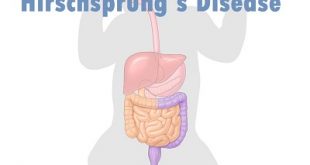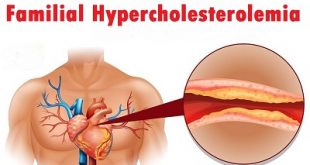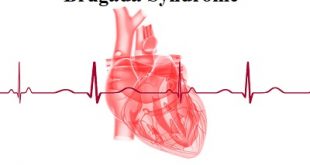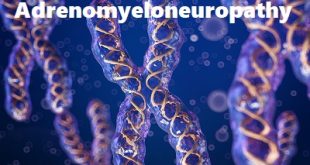What is Lipodystrophy? Lipodystrophy syndromes are rare disorders marked by a lack of body fat just beneath the skin’s surface. Which type a person has is determined by the patterns of fat loss on the body and whether the disease is acquired or genetic. Due to the body’s inability to …
Read More »Hirschsprung’s disease – Types, Pathophysiology, and Treatment
Definition Hirschsprung’s disease is a rare birth defect that affects the large intestine (bowel). It is caused by missing some or all of the nerve cells in your intestine. Nerve cells are important because they tell your intestine to push stools through your bowel. This condition occurs while a baby …
Read More »Familial hypercholesterolemia (FH) – Definition, Causes, and Treatment
Definition Familial hypercholesterolemia is a common life-threatening genetic condition that causes high cholesterol. Untreated, FH leads to early heart attacks and heart disease. People with FH have a high amount of low density lipoprotein (LDL) or “bad cholesterol” due to a mutation in one of the genes that controls the …
Read More »Refsum Disease – Causes, Pathophysiology and Complications
Definition Refsum disease is a genetic disorder that affects the metabolism of the fatty acid phytanic acid. When phytanic acid accumulates, it causes a number of progressive problems, including retinitis pigmentosa, peripheral neuropathy, anosmia, deafness, cerebellar ataxia and elevated protein concentrations in the cerebrospinal fluid in the absence of an …
Read More »Prader-Willi syndrome – Complications, Risk Factors and Treatment
Definition Prader-Willi syndrome is a complex genetic condition that affects many parts of the body. In infancy, this condition is characterized by weak muscle tone (hypotonia), feeding difficulties, poor growth, and delayed development. Beginning in childhood, affected individuals develop an insatiable appetite, which leads to chronic overeating (hyperphagia) and obesity. …
Read More »Brugada Syndrome – Risk Factors, Complications, and Diagnosis.
What is Brugada syndrome? Brugada syndrome is a genetic disorder that can causes a dangerous irregular heartbeat. In many cases, a defect in the SCN5A gene causes the genetic form of this condition. When this defect occurs, it may cause a ventricular arrhythmia. This is a type of irregular heartbeat. …
Read More »Adrenomyeloneuropathy – Symptoms, Diagnosis, and Prevention.
Definition Adrenomyeloneuropathy (AMN) is an inherited condition that affects the spinal cord. It is a form of X-linked adrenoleukodystrophy. On average, people with AMN begin to develop features in the late twenties. Signs and symptoms may include progressive stiffness and weakness of the legs; ataxia; speech difficulties; adrenal insufficiency; sexual …
Read More »Fabry Disease – Causes, Risk Factors, Complications, and Treatment.
What is Fabry Disease? Fabry Disease (FD) is a rare genetic disorder caused by a defective gene (the GLA gene) in the body. In most cases, the defect in the gene causes a deficient quantity of the enzyme alpha-galactosidase A. This enzyme is necessary for the daily breakdown (metabolism) of …
Read More » Diseases Treatments Dictionary This is complete solution to read all diseases treatments Which covers Prevention, Causes, Symptoms, Medical Terms, Drugs, Prescription, Natural Remedies with cures and Treatments. Most of the common diseases were listed in names, split with categories.
Diseases Treatments Dictionary This is complete solution to read all diseases treatments Which covers Prevention, Causes, Symptoms, Medical Terms, Drugs, Prescription, Natural Remedies with cures and Treatments. Most of the common diseases were listed in names, split with categories.








